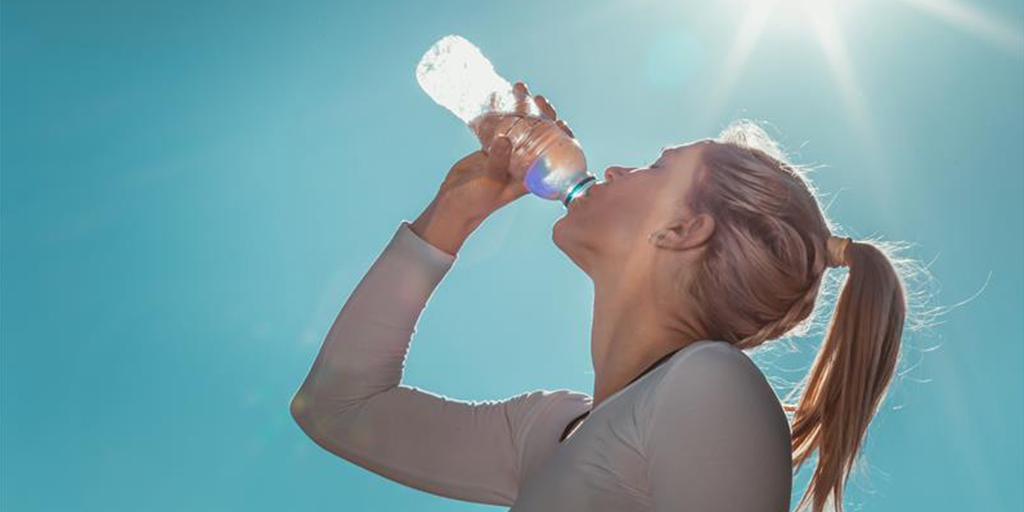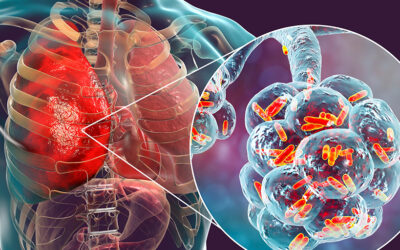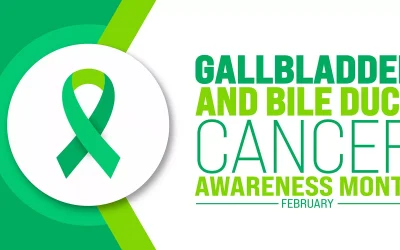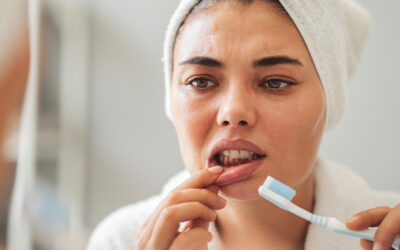Dehydration: Causes, Symptoms, and Treatment Options

The human body is made up of approximately 60-70% water, making it essential for proper functioning of cells and organs. Every cell of our body relies on water to carry out tasks, ranging from regulating temperature to supporting digestion and circulation. That said, there are times when the fluid we consume isn’t enough to meet the body’s needs, leading to dehydration. This may sound concerning, but in most cases, it is a manageable issue that can be easily addressed at home. The key is recognising the signs early on and knowing effective ways to rehydrate. To help us understand this better, this blog will explore the common causes, symptoms and effective treatment options for dehydration, along with practical tips to stay hydrated. Let’s start with understanding the basics.
Table of Contents
ToggleWhat is Dehydration?
Dehydration is a condition that arises when your body doesn’t have enough water to carry out its normal functions. Although the body can function with a slight fluid deficit, it becomes problematic when water levels drop significantly. This can happen due to various reasons, such as not drinking enough fluids, losing excessive fluids through sweating or urination, or a combination of both. When dehydration sets in, the body’s cells, tissues, and organs may not work as efficiently, leading to symptoms such as fatigue, dizziness, and confusion.
What Causes Dehydration?
Dehydration can happen for a number of reasons, and it isn’t always due to simply not drinking enough water. Several factors—ranging from environment and physical activity to medical conditions—can increase fluid loss or reduce fluid intake. Here’s a closer look at the most common causes:
Excessive Sweating Due to Heat or Physical Activity
The body produces sweat to regulate temperature, especially during intense physical activity or when exposed to hot and humid weather. This is a normal cooling response, but it also leads to water and salt loss. When sweating is heavy or prolonged, and fluids are not replaced quickly, it can leave the body short on essential fluids, especially in athletes, outdoor workers, and those spending long hours in the sun.
Fever, Diarrhoea, and Vomiting
Illnesses often lead to fluid loss in more than one way. A high fever increases fluid loss through the skin and breath as the body tries to cool itself. Diarrhoea causes a rapid loss of water and electrolytes from the digestive tract, often more than what can be absorbed. Vomiting, similarly, expels both fluids and stomach contents, making it difficult to stay hydrated, especially if intake becomes difficult due to nausea or poor appetite.
Increased Urine Output
Some conditions, such as uncontrolled diabetes, lead to frequent urination as the body tries to remove excess sugar. This results in a noticeable loss of water and can cause dehydration if fluids aren’t replenished. Certain medications, especially diuretics (commonly used for blood pressure or heart conditions), are also known to increase urine production. If fluid intake is not adjusted accordingly, dehydration may develop gradually.
Inadequate Fluid Intake
One of the most overlooked causes is simply not drinking enough water. People often don’t feel thirsty until they are already slightly dehydrated. This is particularly true for older adults, whose sense of thirst tends to decline with age. In some cases, people may avoid drinking water due to a busy schedule, limited access, or because they’re unwell. Fasting, reduced appetite, or restrictive diets can also reduce fluid intake unintentionally.
Excessive Use of Alcohol or Caffeinated Drinks
Alcohol acts as a diuretic, which means it causes the body to lose more fluids through urination. When consumed in large quantities or without adequate water, alcohol can significantly contribute to dehydration. Similarly, drinks high in caffeine, such as coffee and energy drinks, may also increase fluid loss if consumed in excess, particularly when they replace water throughout the day.
Read more- From Redness to Irritation: A Complete Guide to Skin Rashes
What are the Symptoms of Dehydration?
Dehydration can cause a range of symptoms that vary depending on its severity. Some common signs include:
- Thirst and a dry mouth, which are the body’s initial signals that it needs more water.
- Fatigue or feeling unusually tired, as dehydration can cause your energy levels to drop.
- Dizziness or lightheadedness, particularly when standing up quickly, due to low blood volume and changes in blood pressure.
- Dark yellow or amber urine, and a noticeable reduction in urine output, as the body tries to conserve water.
- Dry skin that may appear less elastic, with skin that doesn’t bounce back when pinched.
- Headache, which can occur when the brain temporarily shrinks from fluid loss.
- Confusion or difficulty concentrating, as dehydration can affect brain function.
- Rapid heartbeat or breathing, especially in more severe dehydration, as the body tries to maintain adequate circulation.
- Sunken eyes, where the eyes may appear hollow or deeply set in extreme cases of dehydration.
Recognising these symptoms early on and rehydrating can help prevent dehydration from progressing to a more serious stage.
Read more-Dengue Fever: Causes, Symptoms, Diagnosis, Treatment, and Prevention
Who is at a Higher Risk of Dehydration?
Although dehydration can affect anyone, some groups are more vulnerable due to how their bodies respond to fluid loss or how easily they can access and retain fluids.
- Infants and young children: Their bodies lose fluids more quickly, especially during diarrhoea, vomiting, or fever. They may not recognise or express thirst, making it harder to maintain hydration.
- Elderly: The sensation of thirst often weakens with age. Limited mobility, memory issues, or certain medications such as diuretics can also reduce fluid intake or increase loss.
- People with chronic illnesses: Conditions such as diabetes, kidney disorders, or adrenal problems can affect the body’s ability to retain fluids. Some treatments may also lead to increased fluid loss.
- Athletes and physically active individuals: Heavy sweating during intense activity can cause a drop in fluid levels. Without timely water intake, dehydration can set in quickly—especially in hot or humid conditions.
- People exposed to high temperatures: Those who work outdoors or live in hot climates are more likely to sweat excessively. Without frequent hydration, they face a greater risk of fluid loss and heat-related issues.
How Can You Rehydrate Quickly at Home?
Mild dehydration can usually be managed effectively at home using simple methods. The key is to act early and restore the body’s fluid balance with the right approach. Below are helpful tips:
- Drink water frequently in small amounts: Avoid gulping down large quantities at once, especially if feeling nauseated. Small sips at regular intervals are easier for the body to absorb and reduce the risk of vomiting.
- Use oral rehydration solutions (ORS): ORS contains a balance of salts and sugar that helps the body absorb water more efficiently. It is especially helpful after diarrhoea or vomiting. ORS is available in sachets at pharmacies, or a homemade solution can be made using 1 litre of clean water, 6 teaspoons of sugar, and ½ teaspoon of salt.
- Include fluids with natural electrolytes: Coconut water, clear soups, and diluted fruit juices can help restore lost electrolytes. These are particularly helpful after sweating, physical activity, or heat exposure
- Eat foods with high water content: Fruits and vegetables such as watermelon, cucumber, oranges, tomatoes, and strawberries provide both hydration and essential nutrients.
- Avoid caffeine and alcohol: These can worsen dehydration by increasing fluid loss through urination. Stick to plain water or drinks specifically meant for rehydration.
- Take adequate rest: Rest helps the body retain energy and focus on recovery. Physical activity can lead to further fluid loss through sweat, so it is best avoided until fully rehydrated
- Stay in a cool, shaded place: Reducing exposure to heat prevents further water loss. Use a fan or air cooler and wear light, breathable clothing.
- Keep track of recovery signs: Signs that rehydration is working include a return of normal energy levels, reduced thirst, and lighter-coloured urine. If symptoms persist or worsen, consult a doctor
How Can Dehydration Be Prevented?
Preventing dehydration involves making a few simple adjustments to daily habits, especially during hot weather, physical activity, or illness. These practical tips can help reduce the chances of fluid loss:
- Drink water consistently throughout the day: Do not wait to feel thirsty. By the time thirst sets in, mild dehydration may already be present. Try sipping water at regular intervals rather than drinking large amounts all at once.
- Increase fluid intake during hot weather or physical activity: High temperatures and exercise increase sweat loss. Carry a water bottle and take breaks to rehydrate, especially during outdoor activities.
- Consume water-rich foods: Include fruits and vegetables like watermelon, cucumber, lettuce, oranges, and strawberries. These contribute to daily fluid needs and also offer important nutrients.
- Avoid drinks that increase fluid loss: Beverages such as coffee, tea, and alcohol can have a diuretic effect. Limit their intake, especially when already at risk of dehydration.
- Pay attention to signs of early dehydration: Signs such as dry mouth, fatigue, headache, or darker urine are signals to drink more fluids. Acting early can prevent symptoms from worsening.
- Adjust fluid intake during illness: Fever, diarrhoea, or vomiting can lead to rapid fluid loss. Increase water, ORS, or other hydrating fluids during recovery.
- Encourage children and older adults to drink water: Both age groups may not feel thirsty often or may forget to drink water regularly. Offer fluids frequently and in ways they enjoy.
- Use reminders if needed: Setting regular alarms or using apps can be useful for people who often forget to drink water during busy routines.
When Should You See a Doctor for Dehydration?
Mild dehydration can usually be managed at home, but certain signs and situations require medical attention. Here are the key times to consult a doctor:
- No improvement after rehydration at home: If symptoms such as dizziness, weakness, or confusion do not get better after increasing fluid intake, medical care is needed.
- Persistent vomiting or diarrhoea: When the body continues to lose fluids and cannot retain what is being consumed, dehydration may worsen quickly without treatment.
- Signs of severe dehydration: Symptoms like sunken eyes, a very dry mouth, low blood pressure, rapid heartbeat, or little to no urine output should be taken seriously.
- High fever along with dehydration symptoms: A high body temperature speeds up fluid loss, making it harder to stay hydrated and increasing the risk of complications.
- Concerns in infants, young children, or elderly: These groups are more prone to the effects of dehydration, and symptoms such as dry lips, reduced urine output, or unusual sleepiness should not be ignored.
- Underlying medical conditions: People with health issues like diabetes, kidney disease, or heart problems should seek medical help early if they notice signs of dehydration, as it can affect their condition further.
Wrap Up
Most cases of dehydration can be managed with care at home, but some situations call for timely medical attention. If there’s persistent fatigue, dizziness, or concerns about fluid loss due to illness or weather, it’s worth getting checked. At Graphic Era Hospital, guidance is available for those unsure about the next step or in need of support. A consultation can offer clarity and comfort before the condition becomes more serious.
Frequently Asked Questions
Can dehydration affect blood pressure or heart rate?
Yes, dehydration can lead to a drop in blood pressure and a rise in heart rate. When fluid levels drop, blood volume decreases, making it harder for the heart to pump blood efficiently. As a result, the heart may beat faster to compensate, and blood pressure may fall, especially when standing up quickly, causing light-headedness or dizziness.
What are the signs of dehydration in babies or young children?
In young children, signs can include a dry mouth or tongue, fewer wet nappies than usual, sunken eyes or soft spot (fontanelle), tearless crying, and unusual tiredness or irritability. In severe cases, the child may appear very drowsy or unresponsive. Prompt rehydration is important, and medical attention should be sought if symptoms are severe or persist.
How does dehydration impact mental clarity or mood?
Even mild dehydration can affect the brain. It may lead to difficulties with concentration, short-term memory, or decision-making. Some people also report feeling more tired, anxious, or irritable. Staying well-hydrated supports both physical and mental wellbeing.
Can certain medications increase the risk of dehydration?
Yes, some medicines can raise the risk. Diuretics, commonly used for high blood pressure, increase fluid loss through urination. Other medications, such as certain antihistamines, laxatives, and some treatments for diabetes or chemotherapy, may also contribute. It’s important to discuss any concerns with a doctor, especially during hot weather or illness.
Can dehydration cause muscle cramps or joint pain?
Dehydration may lead to muscle cramps, especially during or after physical activity, as the body loses electrolytes and fluids. Joint pain is less common but may be felt due to reduced lubrication around the joints, which can make movement feel stiff or uncomfortable.
Are sports drinks better than water for rehydration?
Water is usually sufficient, however, during intense exercise or in cases of significant fluid loss (like from vomiting or diarrhoea), drinks with electrolytes may help replace lost salts more effectively. It’s best to avoid sugary or high-caffeine drinks, as they can sometimes worsen dehydration.
By Specialities
- Bariatric Surgery
- Cancer Care
- Cardiology
- Dental
- Dermatology
- Diabetes & Endocrinology
- Endocrinology and Diabetes
- ENT (Ear Nose Throat)
- Eye Care
- Gastroenterology
- Haematology
- Health Awareness
- Health Care
- Health Tips
- Hematology
- Hepatology
- Internal Medicine
- Mental Health and Behavioural Sciences
- Metabolic
- Neonatology
- Nephrology
- Neurology
- Nutrition & Dietetics
- Obstetrics & Gynaecology
- Oncology
- Ophthalmology
- Orthopaedics
- Paediatric
- Physiotherapy & Rehabilitation
- Plastic and Reconstructive Surgery
- Psychology
- Pulmonology
- Rheumatology
- Spine
- Urology
Recent Posts
Need expert medical advice?
Share your details and our healthcare specialists will reach out to assist you.
By proceeding, you acknowledge and agree to our Privacy Policy, Terms of Use, and Disclaimer.



















